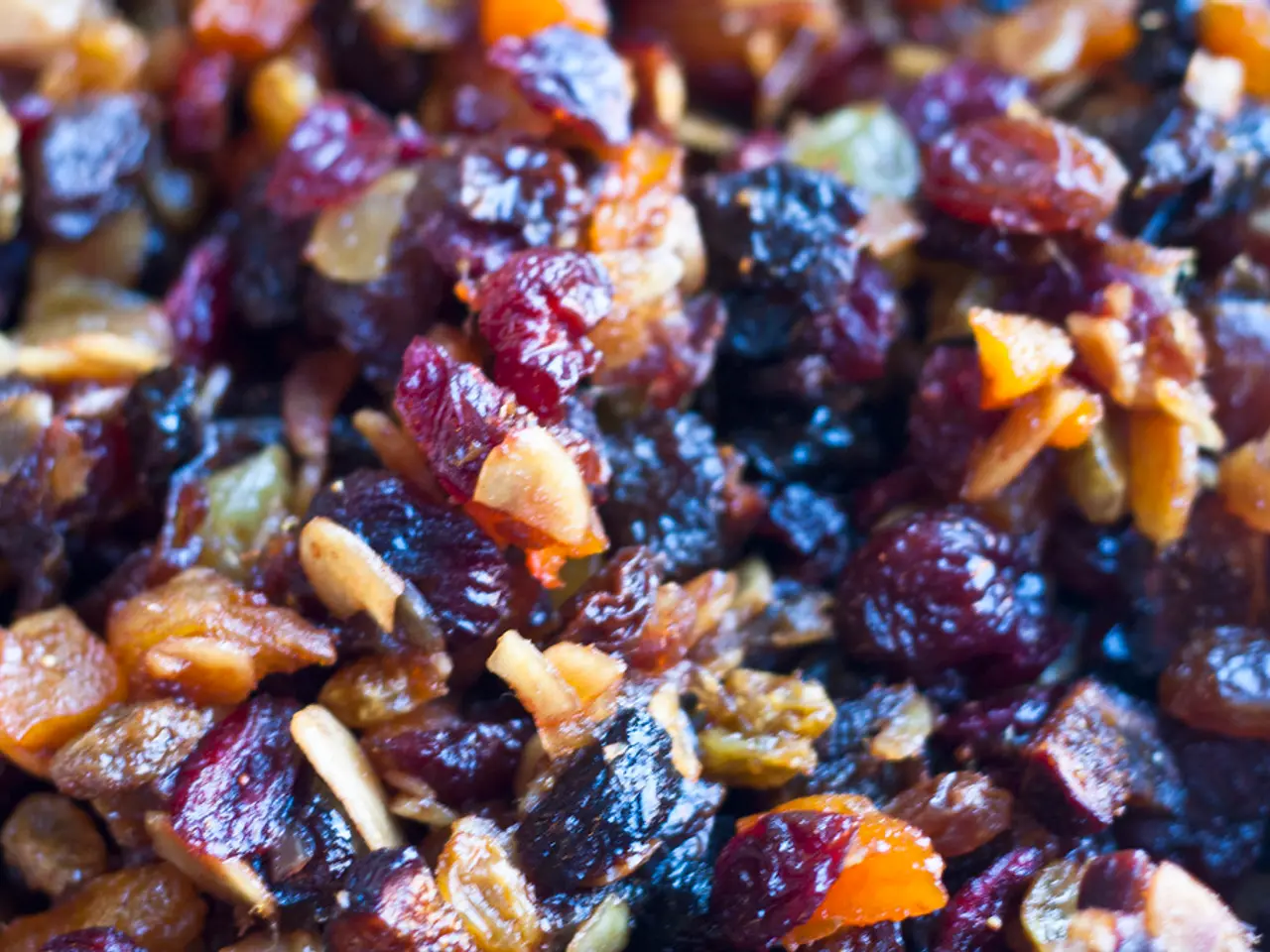Sleep and Diet: Top Secrets for Optimal Rest Tonight
In the realm of diet and health, the connection between what we eat and our sleep quality is becoming increasingly evident. A significant factor influencing this relationship is the pH level of our diets.
An acidic diet, characterised by a predominance of foods with a pH level of 4.6 or lower, can have a detrimental effect on sleep. Consuming heavy or acidic foods close to bedtime can lead to difficulty falling asleep or staying asleep, as these foods increase stomach acid and the risk of acid reflux.
However, adopting an alkaline-focused diet, with an emphasis on plant-based foods and minimising processed options, can be beneficial for promoting better sleep. Key alkaline foods include soy products like tofu and miso, fresh vegetables, unsweetened dairy options, selected fruits, herbs and spices (excluding salt, nutmeg, and mustard), lentils and beans, whole grains like quinoa and millet, healthy fats from nuts, olive oil, and avocados, and herbal teas.
The food we consume plays a crucial role in our sleep quality. Both the quantity and quality of food eaten affect sleep, and the food consumed can significantly impact sleep quality. Integrating alkaline foods into the diet can promote better digestion and ultimately lead to improved sleep quality. Frequent issues like indigestion may indicate an overly acidic environment in the body.
It's important to note that our bodies require varying pH levels for different systems. For instance, blood is naturally more alkaline than the stomach. Consistently consuming acidic foods can lower overall blood pH, leading to health issues including poor sleep.
While it may be challenging to completely eliminate all acidic foods initially, gradual changes can enhance both health and sleep quality. Many individuals inadvertently consume diets that disrupt sleep. The brain requires significant energy for sleep, and if the digestive system is overloaded with processing heavy, acidic meals, it diverts energy away from sleep.
Certain acidic foods, such as tomatoes, citrus fruits, tomato sauce, orange juice, coffee, chocolate, mint, and carbonated beverages, are known to cause gastroesophageal reflux disease (GERD) and heartburn, which can disrupt sleep by causing discomfort and acid reflux during the night. Eating such foods close to bedtime increases the chance of acid reflux due to lying down soon after eating, further impairing sleep.
Common acidic foods to avoid include grains and bread, refined sugars, fish (including processed options), dairy products, fast foods like pizza, fries, and burgers, sugary drinks, alcohol, sodas, high-protein supplements, certain fruits and fruit juices, and selected vegetables.
Understanding pH levels is crucial; battery acid has a pH of zero, while pure distilled water sits at a neutral pH of 7. By making mindful dietary choices and transitioning towards a more alkaline diet, we can pave the way for more peaceful nights, as the food consumed is intrinsically linked to sleep quality.
- To improve sleep health, consider adjusting your diet to include more alkaline foods, such as soy products, fresh vegetables, herbal teas, healthy fats, and whole grains, which can promote better digestion and sleep quality.
- A diet high in acidic foods, like tomatoes, citrus fruits, coffee, and chocolate, can increase stomach acid and the risk of acid reflux, making it difficult to fall asleep or stay asleep.
- Integrating natural mattresses, adjustable beds, and supportive pillows into your sleep environment can also contribute to better sleep, complementing the benefits of a balanced diet.
- Comfort is key in promoting sleep health; consider opting for a comfortable, supportive pillow, as a poorly chosen pillow can disrupt sleep.
- In the realm of health-and-wellness, healthy cooking, nutritious food-and-drink choices, and regular exercise are all important lifestyle factors that impact sleep, in addition to diet.
- The science of pH levels shows that an acidic diet, characterized by foods with a pH level of 4.6 or lower, can negatively impact sleep, while an alkaline diet can contribute to better sleep and overall wellness.
- Adopting a lifestyle that emphasizes sleep health, including a balanced diet, comfortable sleep space, and healthy habits, can lead to improved sleep and increased vitality, contributing to overall well-being and healthy living.




